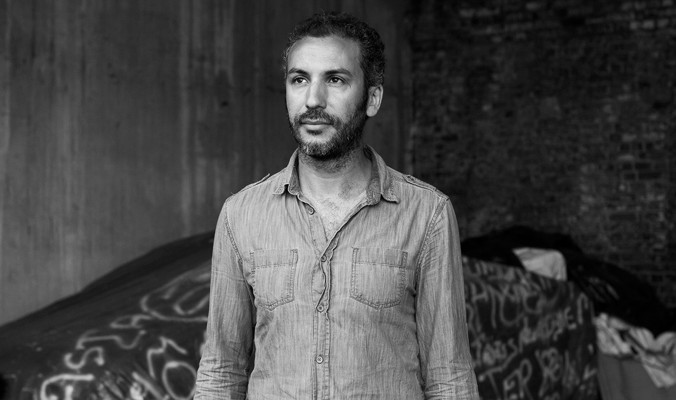
Performed in French, with English surtitles, Mohamed El Khatib’s A Beautiful Ending might be described as theatrical (auto)biography, or as journalistic experimentation, or an approximation thereof.
I hesitate to throw an easy tagline at this knotty, sometimes variable account of a mother’s death. I can say, in spite of a few misgivings, that I am glad that it is on stage here in Birmingham. This production is dissimilar in its content and form to most of the other productions that I have had the opportunity to see in the Door theatre, but far from dissimilar in its innovation. Yet, it is in its innovation that the audience are left wanting, too.
One wonders if anything is gained—or, indeed, what might be lost—through the necessity of surtitling the production. On the one hand, the production appeals to ruminations on the universal nature of familial love, loss, hurt, and the rest. On the other, the translation is projected in huge print on the back wall, and, as El Khatib spends most of his time downstage left, the audience is frequently forced to look away from him.
The final, funereal anecdote is delivered in English (preceded by charming, unnecessary apologies for its broken nature), with trumpet noise as soundscape, and features more movement and blocking than in the entire rest of the performance. Sprinkles of this throughout would have been welcome. More sensory trinkets—colour, music, light—are necessary. As it is, there were occasional sleepy moments.
El Khatib has an earnest, attractive onstage presence and great affection for the story he tells, so the major problem is in the staging. It fails to indicate or punctuate the ebbs of the narrative, only the surtitles deserving praise for their comedic timing.
Supported by the Institut Français du Royaume-Uni, as part of its series En Scène, there is only one more opportunity to see A Beautiful Ending, tonight (27th January). If it crops up anywhere else soon and has piqued your interest, ready yourself for a meeting with ghosts and book a ticket.
In my opinion, more of the performance’s messages come alive after exiting the space and taking a step away from it. It snaps into focus once you start to think back on it. Perhaps this is the point, or perhaps it flew over my head the first time. ★★★☆☆ Will Amott 27th January 2016

